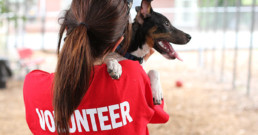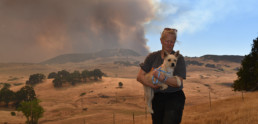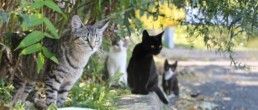Invite your local animal rescue group to the city hall
"Together we stand, divided we fall" is one of the most famous Pink Floyd lyrics and yet applies so much when it comes to stray animals' protection. People prove everyday how powerful they become when working together.
Animal welfare groups operating independently to their city/ municipality succeed great achievements but this assumption does not work vice versa. Cities need the expertise and the passion of animal rescue groups.
How to engage animal rescue group collaborate with the municipality:
- Invite your local animal rescue groups to the city hall and give them the time to share their expertise on stray animals' management; be open and listen to their proposals;
- Prepare a list of issues that your city needs help in order to design concrete animal welfare policies; reach them out to your local volunteers.
- Set up regular meetings on a quarter basis;
- Run adoption campaigns within the city's social media accounts;
- Make the city more animal friendly but installing food and water bowls for the stray animals.
- Provide them with equipment when necessary;
- Appoint a council member that really cares to handle the stray animals' management.
Insight: Companion animals' management during wildfires, the case of Greece
Civil protection for animals:
Civil protection design is widely common in Europe and well organised for citizens but most cities are unprepared to deal with crisis management for animals at the event of natural disasters such as floods, earthquakes and wildfires. Greece has experienced within 2017 and 2019 two major natural disasters. We will present the outcome of the 2018 wildfires incident in East Attica, Greece.
Saving stray animals during a wildfire crisis:
On July 23, 2018, at 12:03 p.m., a wildfire broke out in West Attica, near Kineta. Shortly after, a second fire broke out in Neos Voutzas and soon reached the areas of Mati, Rafina and Marathonas, resulting in the death of 99 people and leaving behind a massive social and environmental disaster. Among the victims there were hundreds of companion and wild animals. The actual number of animals that died in the wildfires cannot be determined. In numbers: 101 dead citizens: 187 people who received medical treatment, 530 animals that received veterinary care, 68.892 acres total burned area.
Managing companion animals during a natural disaster:
This tragic incident and the involvement to our team during the crisis management process led us to release the following tips for cities:
- Set up a fostering mechanism in advance. It is very important to provide a safe facility for animals in need;
- Promote microchip for every single animal in advance: many animals get lost during a crisis and it is way easier to reunite them with their owners if they are microchipped.
- Set up a veterinary station: depending on the crisis registered veterinaries should be immediately available to receive animals in need for veterinary treatment.
- Set up a platform in order to distribute guidelines and instructions to volunteers: managing the citizens, volunteers, the media and public authorities gets really demanding during a crisis. Be sure that you provide a reliable source of information where official announcements for animals' management will be published.
If interested to find out more please visit our full report on the 2018 East Attica wildfires management here: https://www.dogsvoice.gr/user/dogsvoice-report-on-wildfires-2018.pdf
How to treat a cat colony
What is the most common mistake people living in cities do when it comes to cat colonies protection? They mostly feed them.
Is it wrong? Absolutely not! But just feeding a cat colony leads to hundreds of new kittens and an excess in the population.
If you feed a cat colony then please follow the tips below:
- Take photo of every cat in your cat colony and keep a note regarding its gender; it’s quite easy to find out.
- Get in touch with your municipality or local animal group to check if the cats are neutered.
- If not, contact your municipality or local animal group immediately and help them neuter the cats.
- If they have been neutered procure for some steady food and water bowls as well as some small boxes to keep the colony in place safe and happy.
- If you suspect that a cat in your colony is sick or abused contact your municipality and local group in order to transfer it to the vet.
- If a new cat shows up, keep a note and inform the local group immediately.
- Run an adoption campaign.



